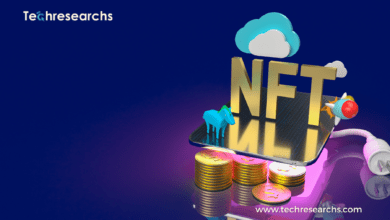Transforming Travel with Decentralized Apps: Reinventing Booking, Payments, and Logistics


Introduction: Payments and Logistics
The travel industry, known for its dynamic nature, is now on the cusp of a technological revolution that promises to reshape the way we book, pay, Payments and Logistics, and experience our journeys.
Decentralized applications (DApps) are at the forefront of this transformation, offering a decentralized, transparent, and efficient approach to various aspects of the travel ecosystem.
In this blog, we explore how DApps are revolutionizing the travel industry, from booking accommodations to handling payments and logistics, all while fostering trust among travelers and service providers.
Decentralized Booking: Empowering Travelers and Providers
From Centralized to Decentralized: Traditional booking platforms often act as intermediaries between travelers and service providers, increasing costs and potential inefficiencies. DApps eliminate intermediaries, connecting travelers directly with accommodations, tours, and services.
Smart Contracts: DApps leverage smart contracts—self-executing contracts with predefined rules—to facilitate secure and automated bookings. This ensures that bookings are executed as agreed upon, reducing the risk of disputes.
Seamless Payments: Transcending Borders and Currencies
Global Payment Solutions: DApps offer borderless and decentralized payment options, allowing travelers to make payments using cryptocurrencies or digital tokens. This eliminates the need for currency conversion fees and reduces payment processing times.
Reduced Transaction Costs: Traditional payment systems often involve various intermediaries, each charging a fee. DApps streamline payments, minimizing transaction costs and benefiting both travelers and service providers.
Efficient Logistics: Enhancing Travel Experiences
Supply Chain Transparency: DApps introduce transparency to the travel supply chain. For example, in the logistics of travel experiences like tours and excursions, DApps can track the availability of guides, transportation, and equipment in real time.
Real-Time Updates: Travelers can receive real-time updates on their itineraries, ensuring that they are informed about any changes or delays. This enhances the overall travel experience by reducing uncertainties.
Building Trust: Blockchain’s Role
Transparent and Immutable Records: DApps built on blockchain technology provide an immutable ledger of all transactions and interactions. This transparency builds trust among travelers and service providers, as information cannot be altered or tampered with.
Verified Identities: Blockchain-powered DApps can also verify the identities of both travelers and service providers, reducing the risk of fraudulent activities and enhancing security.
Challenges and Future Prospects
User Adoption: While DApps hold immense potential, user adoption is a challenge. Educating travelers and service providers about the benefits of DApps and cryptocurrencies is crucial.
Scalability: As DApps gain popularity, ensuring scalability and maintaining efficient transaction processing will be essential to handle increased demand.
Learn more about How Decentralized Finance (DeFi) is Revolutionizing the Industry
Conclusion:
Decentralized applications are propelling the travel industry into a new era of efficiency, transparency, and trust.
From transforming booking processes and payments to enhancing logistics and building secure relationships, DApps are revolutionizing how travelers and service providers interact.
As blockchain technology continues to mature, the potential for DApps to disrupt the traditional travel ecosystem and create a more seamless, cost-effective, and rewarding travel experience becomes even more promising.







